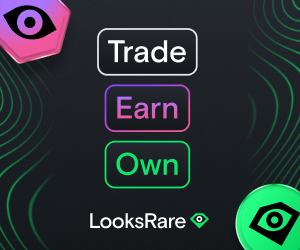Ethereum: Breaking Down the Basics of the Second-Largest Cryptocurrency
Ethereum is a blockchain-based decentralized platform that enables smart contracts and Distributed Applications (DApps) to be built and run without any downtime, or censorship. Ethereum also provides an internal digital cryptocurrency called ether (ETH) which can be used to pay for goods and services on the network.

Bitcoin often steals the spotlight of the blockchain space. But it's important not to overlook the powerful potential of Ethereum, the second-largest cryptocurrency.
With its advanced blockchain technology, Ethereum is more than just a digital currency; it's a platform for building decentralized applications (dApps).
In this article, we will break down the basics of Ethereum and explore the unique features that set it apart from Bitcoin.
Unlike Bitcoin, which primarily serves as a peer-to-peer electronic cash system, Ethereum takes blockchain technology to the next level. Its primary focus is to enable the creation of smart contracts, which are self-executing agreements with predefined terms. This opens up a world of possibilities for developers, as they can build decentralized applications on the Ethereum platform.
We will delve into topics such as Ethereum's native cryptocurrency, Ether (ETH), its consensus mechanism called Proof of Stake (PoS), and the thriving ecosystem of dApps built on its network. By understanding the basics of Ethereum, you will be better equipped to navigate the exciting world of cryptocurrencies and appreciate the unique value that Ethereum brings to the table.
Understanding blockchain technology
To truly understand Ethereum, it's essential to grasp the fundamentals of blockchain technology. Ethereum was first proposed in 2013 by developer Vitalik Buterin.
At its core, a blockchain is a distributed ledger that records all transactions across a network of computers. This decentralized nature ensures transparency and security, as each transaction is verified by multiple participants.
Where Ethereum differentiates itself is in its ability to go beyond simple transactions. While Bitcoin primarily serves as a peer-to-peer electronic cash system, Ethereum takes blockchain technology to the next level. Its primary focus is to enable the creation of smart contracts, which are self-executing agreements with predefined terms. These smart contracts are stored on the Ethereum blockchain, ensuring that they are immutable and tamper-proof.
How does Ethereum work?
Ethereum operates on a decentralized virtual machine called the Ethereum Virtual Machine (EVM). The EVM executes smart contracts, allowing them to interact with each other and access the Ethereum blockchain. This opens up a world of possibilities for developers, as they can build decentralized applications on the Ethereum platform.
One of the key components of Ethereum is its native cryptocurrency, Ether (ETH). Ether serves as the fuel for the Ethereum network, powering transactions and smart contract executions. It can also be used as a store of value or traded on cryptocurrency exchanges.
The differences between Ethereum and Bitcoin
While Bitcoin and Ethereum are both based on blockchain technology, they have distinct differences. Bitcoin was created as a digital currency, aiming to disrupt the traditional financial system. Ethereum, on the other hand, was designed to be a platform for decentralized applications.
Another significant difference between the two is their consensus mechanisms. Bitcoin uses a consensus mechanism called Proof of Work (PoW), where miners compete to solve complex mathematical problems to validate transactions and secure the network. Ethereum, on the other hand, is in the process of transitioning to a new consensus mechanism called Proof of Stake (PoS). PoS relies on validators who hold a certain amount of Ether to secure the network and validate transactions.
The advantages of using Ethereum
Ethereum offers several advantages that make it an attractive platform for developers and users alike. Firstly, its smart contract functionality allows for the creation of decentralized applications with predefined rules and conditions. This enables the automation of processes and eliminates the need for intermediaries, making transactions more efficient and secure.

Another advantage of Ethereum is its ability to facilitate token creation and crowdfunding through Initial Coin Offerings (ICOs). With Ethereum's ERC-20 standard, developers can easily create their own tokens, which can be used for various purposes within decentralized applications or traded on exchanges.
Furthermore, Ethereum has a thriving developer community and a robust ecosystem of decentralized applications. This means that there are numerous dApps built on the Ethereum platform, offering a wide range of services and functionalities. From decentralized finance (DeFi) platforms to gaming and digital collectibles, the possibilities are endless.
Common use cases for Ethereum
Ethereum's versatility and programmability make it suitable for various use cases across different industries. One of the most prominent use cases is decentralized finance. DeFi applications built on Ethereum enable users to lend, borrow, trade, and earn interest without the need for traditional intermediaries. This opens up financial services to individuals who are unbanked or underbanked, providing them with greater financial inclusivity.
The internet of assets
Another common use case is the creation of Non-Fungible Tokens (NFTs). NFTs are unique digital assets that can represent ownership of artwork, collectibles, or even virtual real estate. Ethereum's ERC-721 standard allows for the creation and trading of NFTs, revolutionizing the digital art and collectibles market.
Investing in Ethereum
Given Ethereum's potential and its position as the second-largest cryptocurrency by market capitalization, many investors are interested in adding it to their portfolio. You can check the real-time ETH price from our special widget. There are several ways to invest in Ethereum, including buying and holding Ether directly, participating in ICOs, or investing in Ethereum-based tokens.
It's important to note that investing in cryptocurrencies carries risks, and it's crucial to do thorough research and seek professional advice before making any investment decisions. The cryptocurrency market is highly volatile, and prices can fluctuate significantly.
Ethereum mining explained
Similar to Bitcoin, Ethereum can be mined by individuals or groups of miners. Ethereum mining involves solving complex mathematical problems to validate transactions and add them to the blockchain. Miners are rewarded with Ether for their computational efforts.
However, with the upcoming transition to Proof of Stake, Ethereum mining is set to become obsolete. In a Proof of Stake system, validators are chosen to create new blocks based on the number of tokens they hold and are willing to "stake" as collateral. This transition aims to improve scalability, energy efficiency, and security.
The future of Ethereum
As Ethereum continues to evolve and improve its scalability and security, its future looks promising. The transition to Proof of Stake, along with the upcoming Ethereum 2.0 upgrade, aims to address the network's limitations and enable it to handle a significantly higher number of transactions.
Additionally, the thriving ecosystem of dApps and the continuous development of new use cases contribute to Ethereum's long-term viability. With the potential to revolutionize various industries, Ethereum is well-positioned to shape the future of decentralized applications and blockchain technology.
Ethereum is more than just a digital currency; it is a powerful platform for building decentralized applications. With its advanced blockchain technology, smart contract functionality, and thriving ecosystem, Ethereum offers unique opportunities for developers and users alike. By understanding the basics of Ethereum, you will be better equipped to navigate the exciting world of cryptocurrencies and appreciate the unique value that Ethereum brings to the table. Also, Many type the name etherom but the correct way is Ethereum.
In conclusion, Ethereum's potential to disrupt traditional industries, its robust developer community, and its ability to enable decentralized applications make it a force to be reckoned with in the cryptocurrency space. As the second-largest cryptocurrency, Ethereum offers a wide range of possibilities and opens up new avenues for innovation. Whether you're a developer, investor, or simply curious about the world of cryptocurrencies, Ethereum is definitely worth exploring.
Ethereum foundation official website: https://ethereum.org/en/










